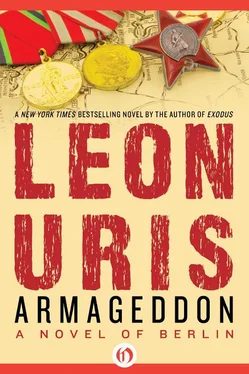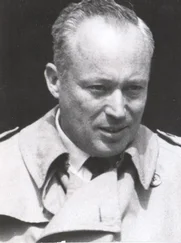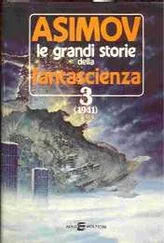Armageddon - Leon Uris
Здесь есть возможность читать онлайн «Armageddon - Leon Uris» весь текст электронной книги совершенно бесплатно (целиком полную версию без сокращений). В некоторых случаях можно слушать аудио, скачать через торрент в формате fb2 и присутствует краткое содержание. Жанр: Старинная литература, на английском языке. Описание произведения, (предисловие) а так же отзывы посетителей доступны на портале библиотеки ЛибКат.
- Название:Leon Uris
- Автор:
- Жанр:
- Год:неизвестен
- ISBN:нет данных
- Рейтинг книги:4 / 5. Голосов: 1
-
Избранное:Добавить в избранное
- Отзывы:
-
Ваша оценка:
- 80
- 1
- 2
- 3
- 4
- 5
Leon Uris: краткое содержание, описание и аннотация
Предлагаем к чтению аннотацию, описание, краткое содержание или предисловие (зависит от того, что написал сам автор книги «Leon Uris»). Если вы не нашли необходимую информацию о книге — напишите в комментариях, мы постараемся отыскать её.
Leon Uris — читать онлайн бесплатно полную книгу (весь текст) целиком
Ниже представлен текст книги, разбитый по страницам. Система сохранения места последней прочитанной страницы, позволяет с удобством читать онлайн бесплатно книгу «Leon Uris», без необходимости каждый раз заново искать на чём Вы остановились. Поставьте закладку, и сможете в любой момент перейти на страницу, на которой закончили чтение.
Интервал:
Закладка:
“You’re reading me loud and clear.”
“I’m not one of these automatic liberals who takes a fixed position, but let’s lay it on the line, General. You’re a Red baiter from the year one.”
“Hear me out and see if I’m a Red baiter.”
Sean had stepped into Hansen’s trap! What if Hansen proved his case? The general knew all along there were senses of duty and points of logic that Sean would respond to.
“I don’t want to hear it, General.”
“They have men of fanatical devotion beyond our comprehension of dedication. They have them by the hundreds of thousands who perform like robots. I lay awake nights in fear of a mortal weakness in us. I fear our sons are too fat, too lazy, too complacent to sacrifice and to serve in silence. It takes no genius to figure out what is going to happen in Berlin and there are too damned few of us willing to believe it or face up to the facts. Our country is asleep. Until it wakes up I need every Sean O’Sullivan I can get in Berlin if we are to survive.”
Sean was dumbstruck by the urgency of the outburst. Could he walk from this room now without even listening to the man’s case?
He nodded slowly for General Hansen to begin....
Chapter Thirty-five
GENERAL ANDREW JACKSON HANSEN first came into contact with the Russians at the close of the First World War in the year 1920. After the Russian Revolution and counterrevolution there was an acute famine condition. As a young officer, he became part of the Hoover Commission, which fed ten million Russians a day.
Hansen contended that the Russian Revolution was not much of a revolution. The Czar’s house was rotten from within from centuries of feudalism, corruption, class rule, church abuse, failure to industrialize, failure to humanize. The rotten house needed but a hearty shove to collapse. History has been conveniently rewritten by the Communists for the world to believe that the revolution was a Communist-led people’s uprising. That is not true.
The Russian people, Hansen said, both by nature and by historical precedent, have proven that they are neither politically inquisitive nor revolutionary in spirit. They have tolerated a police state in one form or another from the origins of their history, for some twelve solid centuries. They have lived out their entire history in complete adjustment to police-state terror with little or no protest.
Hansen liked to point to Pavlov’s experiments with dogs. The great Russian scientist experimented to show how completely an animal could be conditioned. Such an animal could be trained to perform certain feats to ward off hunger, cold, and privation. Hansen believed that in a sense, Pavlov was experimenting with the Russian people themselves. Human history has given few examples of a people who can be so thoroughly conditioned as the Russians. When the pressures reach a critical stage, another bone is thrown them and they will remain quiet. Indeed, with pitifully few exceptions the Russians are magnificently trained animals who will not permit an alien, creative, free, or contradictory idea to function within their minds. They adjust within that framework of what they are allowed to think by their peers.
In recalling the history of the ending of the first war, Russia was weary, bloody, beaten, and hungry. The moment was ripe for a gathering of divergent political parties to unite and push in the Czar’s rotten house. This was the so-called revolution.
Among those divergent groups was the Communist Party. When the new government was formed the Communists were not a majority. However, they were the most tightly knit, the most ruthlessly led, the most dynamic, and the most deliberate in their ultimate goals.
In the confusion that followed the flight of the Czar, the Communists made a naked seizure of power. This was not a popular movement of the people, which they later claimed, nor was it particularly understood in most reaches of that vast land.
After a time, scattered remnants of the Czarist regime got their second wind, and along with Ukrainian and White Russian Nationalists, who hated “Mother Russia,” staged the counterrevolution against the Communists.
These were the “Whites.” The White Counter-Revolution was doomed from its inception. As the Whites reconquered parts of Russia, they reinstated the nobility and the corrupt system that had led to the collapse of the Czar in the first place. They tried to beat a dead horse to life.
The Reds, therefore, fell heir to the people by the default of the Whites. It was the lesser of the evils at the time. The Communists, moreover, did not sell the war-weary people on any lofty idealisms of Marx. The Red slogan was simple and understandable ... Bread! ... Peace! ... Land!
The Communists made a separate peace with Germany, withdrawing Russia from the war, and deserting their former allies. France, Britain, and the United States had both troops and equipment on Russian soil, including an Allied-trained Czechoslovakian division. Angered at Russia’s separate peace and committed to guard their hordes of supplies, the Allies loosely supported the ill-fated White
Counter-Revolution. For this alleged Allied treachery, the Western world earned the everlasting hatred of the Russians.
Poland, which had been partitioned into oblivion before the First World War re-emerged once more as a nation. Poland made an ill-advised move, leaping on the back of the shaky Russians in 1920, the latest in a series of wars between old enemies. However, the Red Army had gained the people’s support and defeated the Poles. Poland fell into the same circle of hatred, being lumped with the West.
One of the first things Hansen learned when he came to starving Russia in 1920 was that the Russians were Asians. Western culture had been imported into only a few of the larger cities. Most of Russia and the other captive states that comprised the Soviet Union simply did not think or act like the West.
From the beginning of the Communist regime the Russians made it clear that they would take Western food, Western long-term loans, Western credits, Western trade, Western recognition. There was never so much as a small thank-you for any of it. For, the Communists made it clear from the first that they intended to remake the world in their own image.
Hansen felt that this, in essence, was more dangerous than the Nazis, who wanted to conquer only in the name of Germany. The Russian aim was more awesome. The Communist believes he has an answer for the entire world. The German arises violently and is beaten down the same way. But the Russians have oriental patience. They waited a decade for political recognition and they will wait a century to achieve the ultimate aim. A stalemate for a decade does not matter, for the machinery is always at work, always plodding on. They are convinced that their final victory is inevitable.
The Russian people knew that all invasions from Napoleon to Hitler had come from the West. Any pact they made for a temporary convenience was for their own benefit. Being allies with the West against the Nazis in no way impeded their other goals against the rest of mankind.
Narrowing the immediate Russian objectives was simple. The first goal was the German working class, the true birthplace of Marxism. Control of the German working class was tantamount to control of Europe ... an old and true axiom. Hansen felt that Russia intended to capture and communize Germany as their first step against all of Europe.
But ... in order to capture Germany ... first, Poland, which sits between them, must go. It was in the maneuverings about Poland during the war that led Hansen to his fears.
Austria, Spain, and Czechoslovakia had been sold out to Hitler by Western ineptness. When Hitler applied the pressure to Poland, Stalin was convinced that the West would also sell out the Poles. To complicate matters, Poland refused Russian help.
Читать дальшеИнтервал:
Закладка:
Похожие книги на «Leon Uris»
Представляем Вашему вниманию похожие книги на «Leon Uris» списком для выбора. Мы отобрали схожую по названию и смыслу литературу в надежде предоставить читателям больше вариантов отыскать новые, интересные, ещё непрочитанные произведения.
Обсуждение, отзывы о книге «Leon Uris» и просто собственные мнения читателей. Оставьте ваши комментарии, напишите, что Вы думаете о произведении, его смысле или главных героях. Укажите что конкретно понравилось, а что нет, и почему Вы так считаете.











